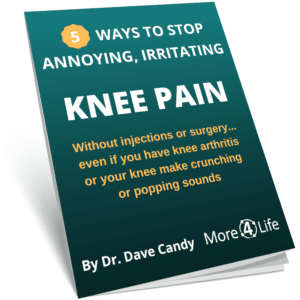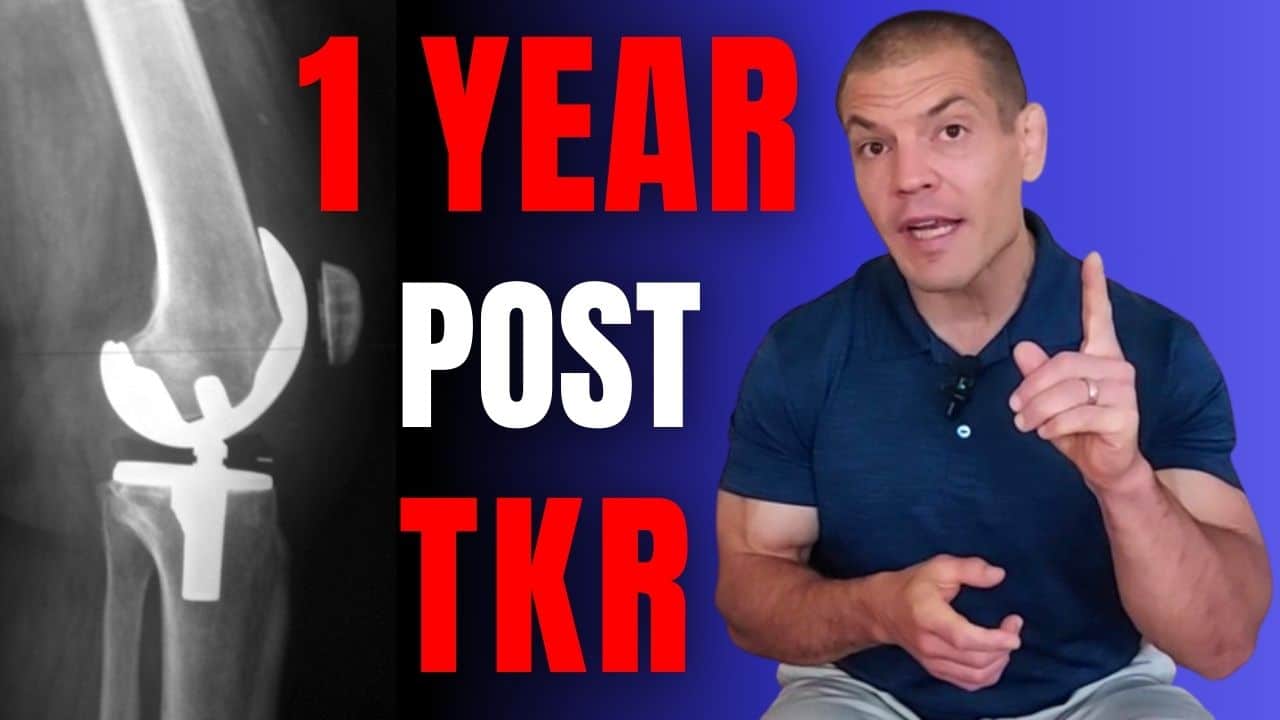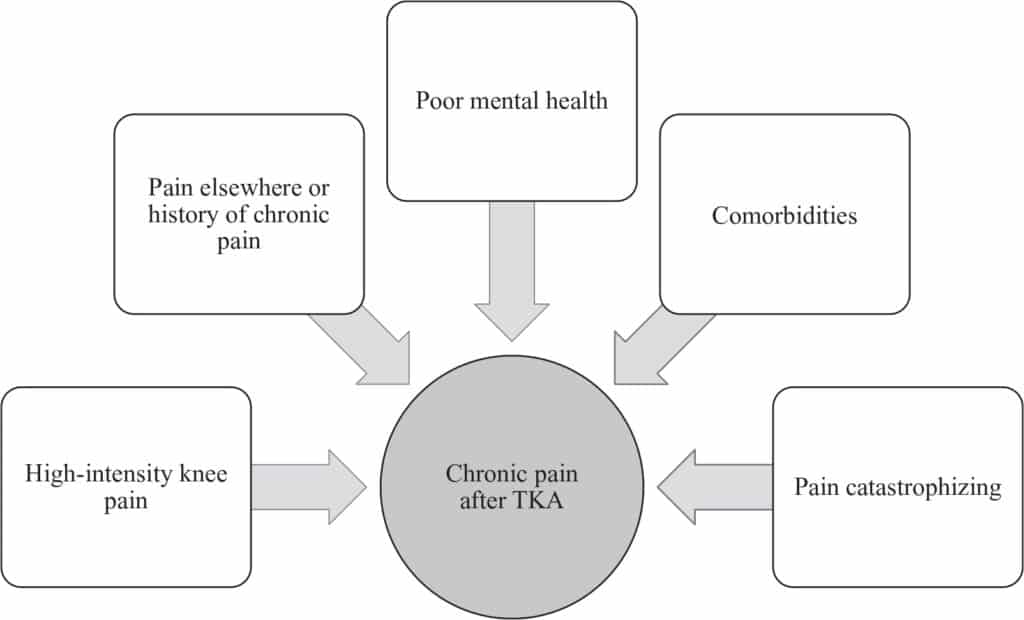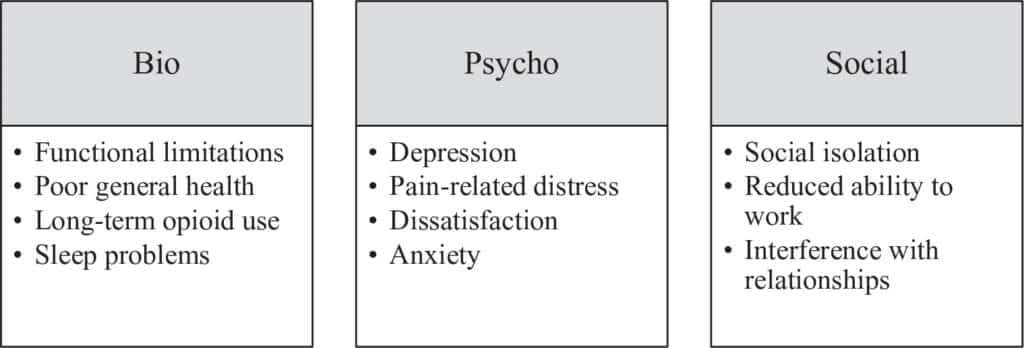20% of people still have knee pain 1 year after total knee replacement.
It can be incredibly frustrating to go through surgery and rehabilitation, only to have persistent knee pain. In this post, we'll explore common reasons for pain 1 year after knee replacement. Plus, you'll learn practical tips to improve your knee comfort and quality of life.

Causes of Pain 1 Year After Knee Replacement
When patients still have pain six months or a year following surgery, they worry something went wrong. The good news is, in most cases, everything is fine. However, persistent pain can still occur, and it's essential to understand why.
Research1, 2, 3 has identified five main predictors of chronic pain following knee replacement:
- catastrophizing
- poor mental health
- high preoperative pain
- pain at other sites
- number of comorbidities
Catastrophizing: The #1 Predictor of Persistent Pain 1 Year After Knee Replacement
Catastrophizing is thinking the worst will happen, and often, it's a self-fulfilling prophecy. Multiple research studies have identified catastrophizing as the biggest predictor of persistent pain after knee replacement.
Therefore, if you're going into a knee replacement, make sure you're confident that you need at and that it's the right decision. If you're not certain, wait until you are.
If you've already had a knee replacement and you're still having pain 1 year later, keep a positive outlook that you can still yet improve.
The Role of Mental Health on Chronic Pain
Poor mental health, including anxiety and depression, has been shown to be a predictor of persistent knee pain. Anxiety and depression can lead to poorer outcomes and greater dissatisfaction with many different medical conditions and procedures, including total knee replacement.
High Pre-Operative Pain Levels
You'd think that if you have a lot of knee pain that it would make you a good candidate for a total knee replacement.
However, the opposite is true. The more pain you have before a knee replacement, the more likely you are to experience persistent pain after knee replacement.
This can be due to the sensitivity of the nervous system, where the nervous system remains irritable even after surgery.
Pain in Other Areas
People with widespread pain or pain in other areas, such as both knees or multiple joints, tend to experience more chronic pain.
This indicates a more central cause of pain, where the spinal cord and brain become over-responsive to painful stimuli (called nociplastic pain).
In this case, just replacing an arthritic joint isn't likely to relive pain that is due to a central nervous system cause, rather than a joint cause (nociceptive pain).
Comorbidities
Comorbidities like diabetes, obesity, and high blood pressure, especially when combined, can increase the likelihood of poor outcomes.
Improving overall health can help reduce chronic pain.
Practical Tips to Improve Knee Pain 1 Year After Knee Replacement
Pain is a biopsychosocial experience.
Therefore, improving knee pain 1 year after knee replacement involves addressing both physical, mental, and social factors.
factors. Here are some practical tips:
- Maintain a positive mental outlook and avoid catastrophizing.
- Focus on overall health through a healthy diet, adequate sleep, and regular aerobic exercise.
- Manage stress and improve your mental health by seeking support from family, friends, or professionals.
- Perform exercises to relieve stiffness around the knee and improve range of motion.
- Set realistic expectations for recovery and focus on achieving a better quality of life.
Conclusion
Hopefully, this post gave you a better understanding of why you may still be having pain 1 year a knee replacement surgery and armed you with some tips that you can use to improve your knee comfort and quality of life.
Need Help For Pain 1 Year After Knee Replacement?
If you live in the St. Louis area and need more help for persistent pain after knee replacement (even if it's been a year or more), tap the button below to request an appointment with one of our specialist physical therapists.
Like this post? Here are some others you may enjoy:
Feels Like A Tight Band Around Knee After Total Knee Replacement Surgery
Top 5 Mistakes After Knee Replacement
Top 10 Reasons For Chronic Pain After Knee Replacement
How To Walk Without A Limp (Even With Arthritis Or After Hip Or Knee Surgery)
Total Solutions For Total Knee Replacement with guest Tony Maritato




